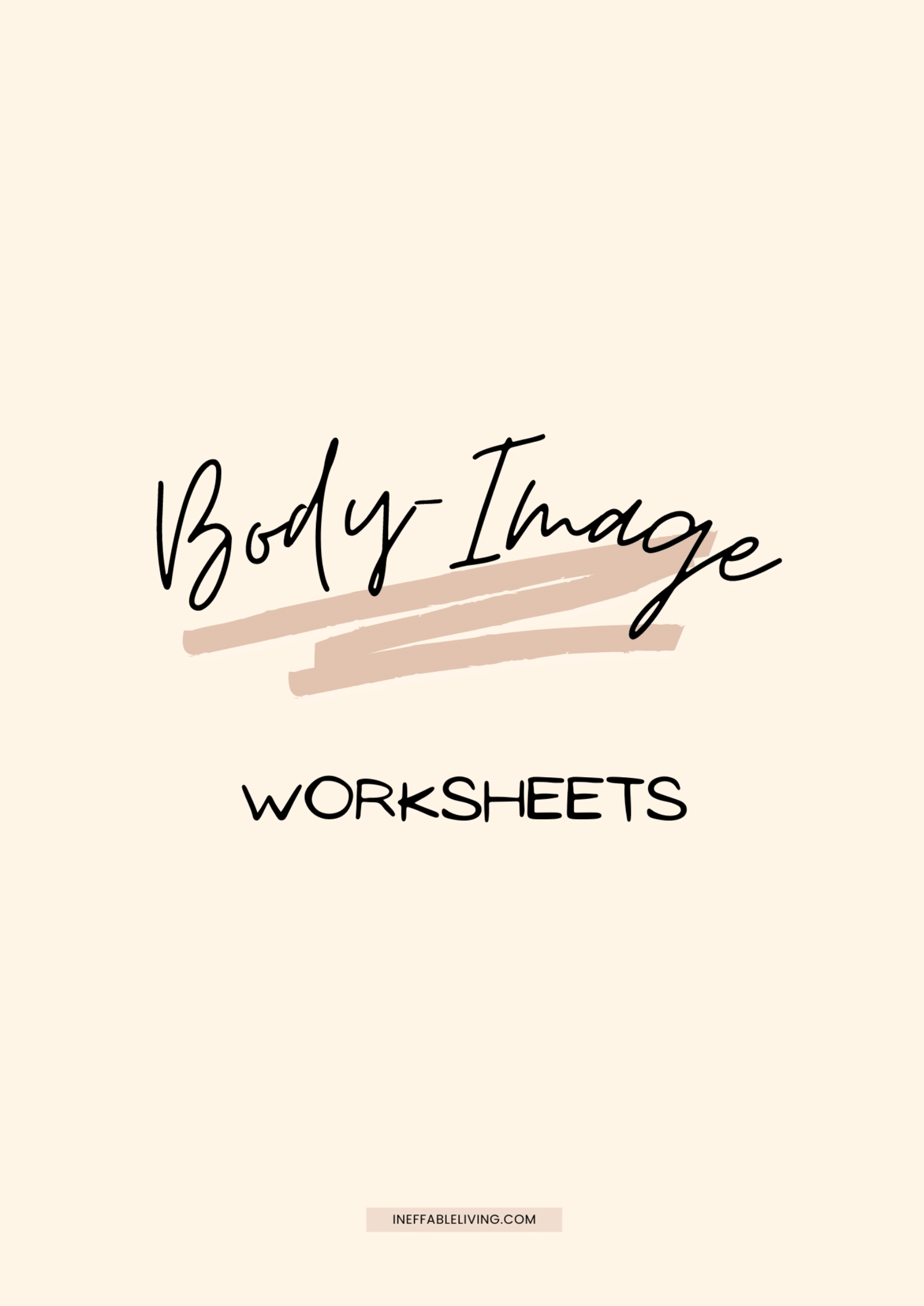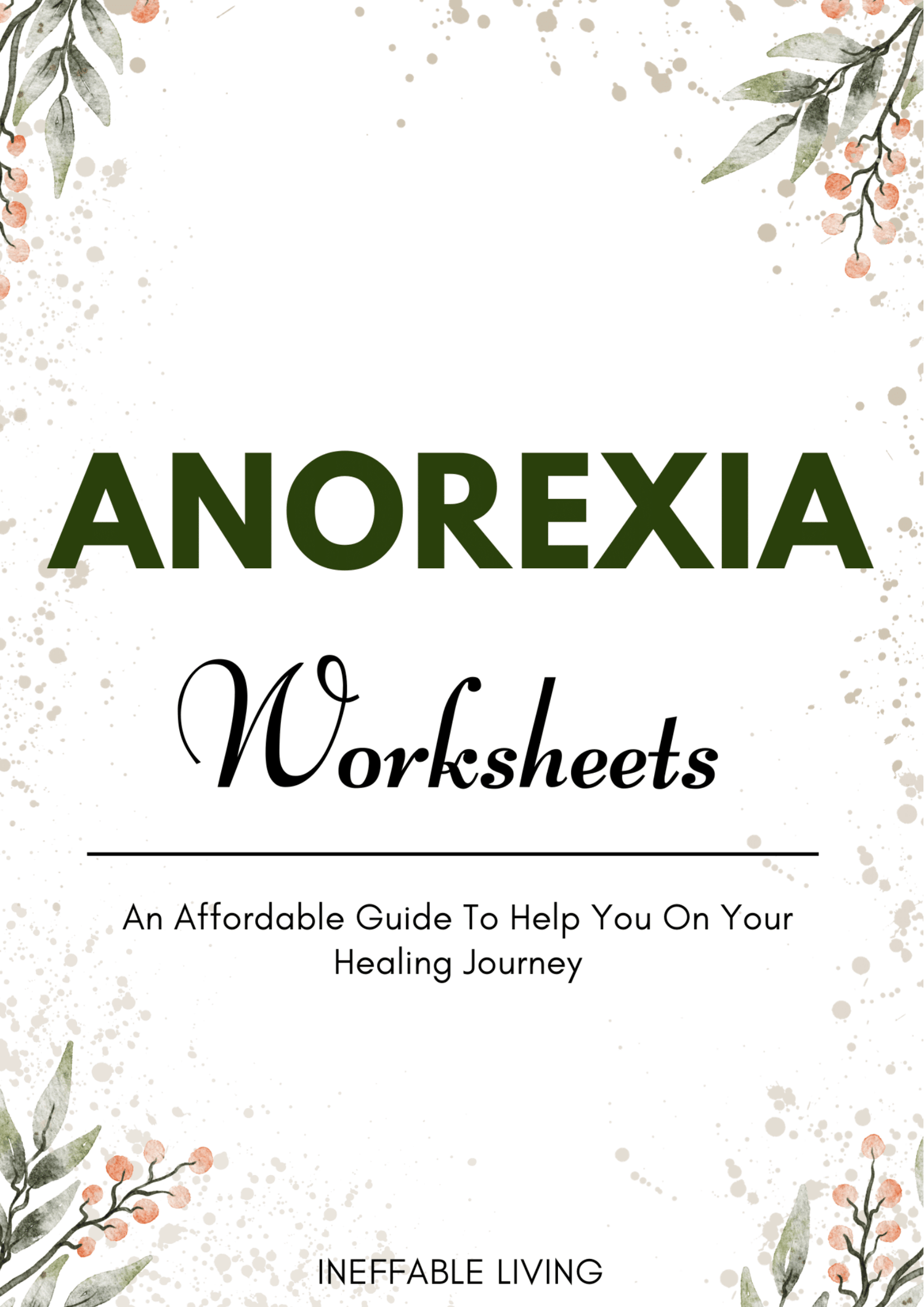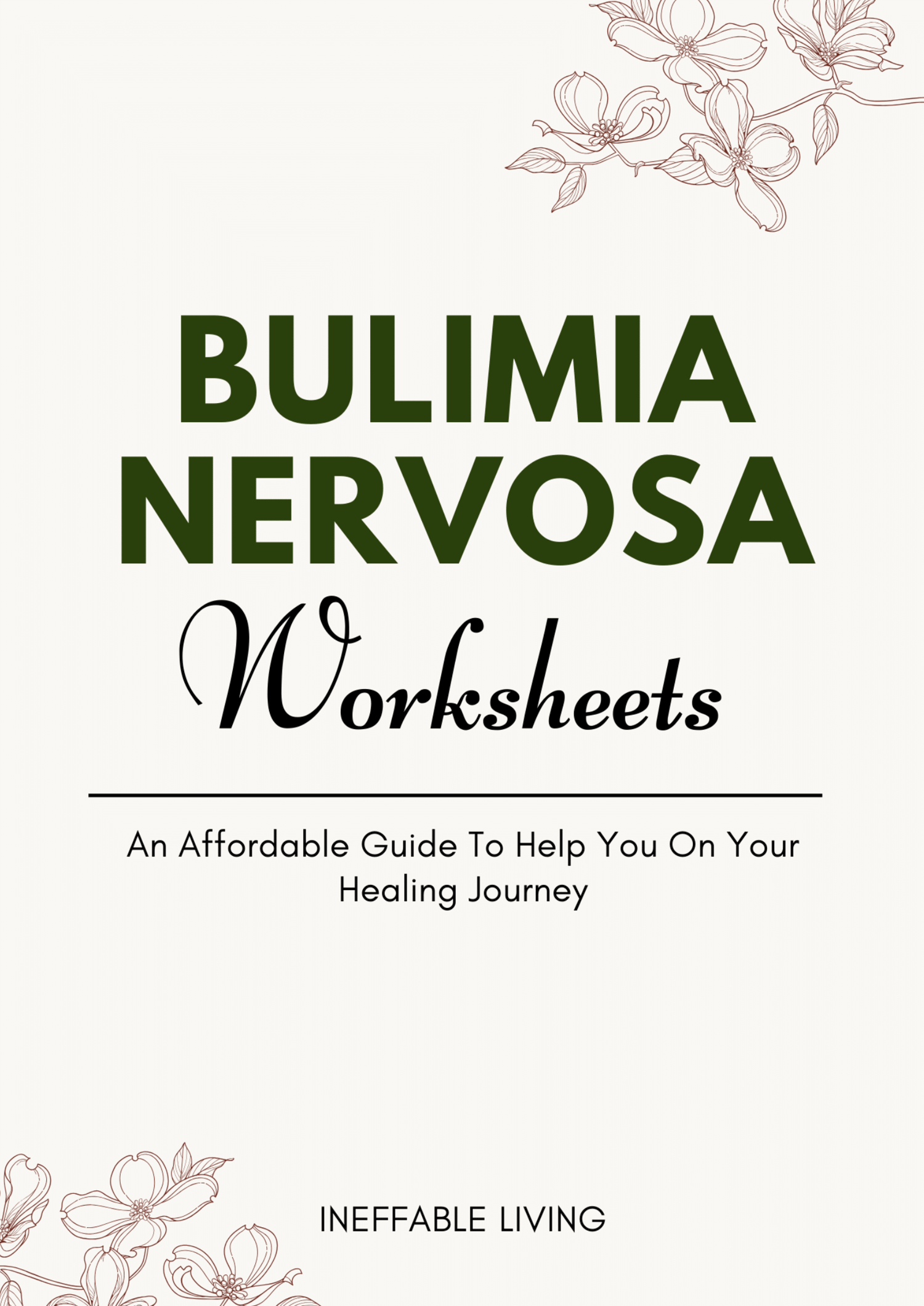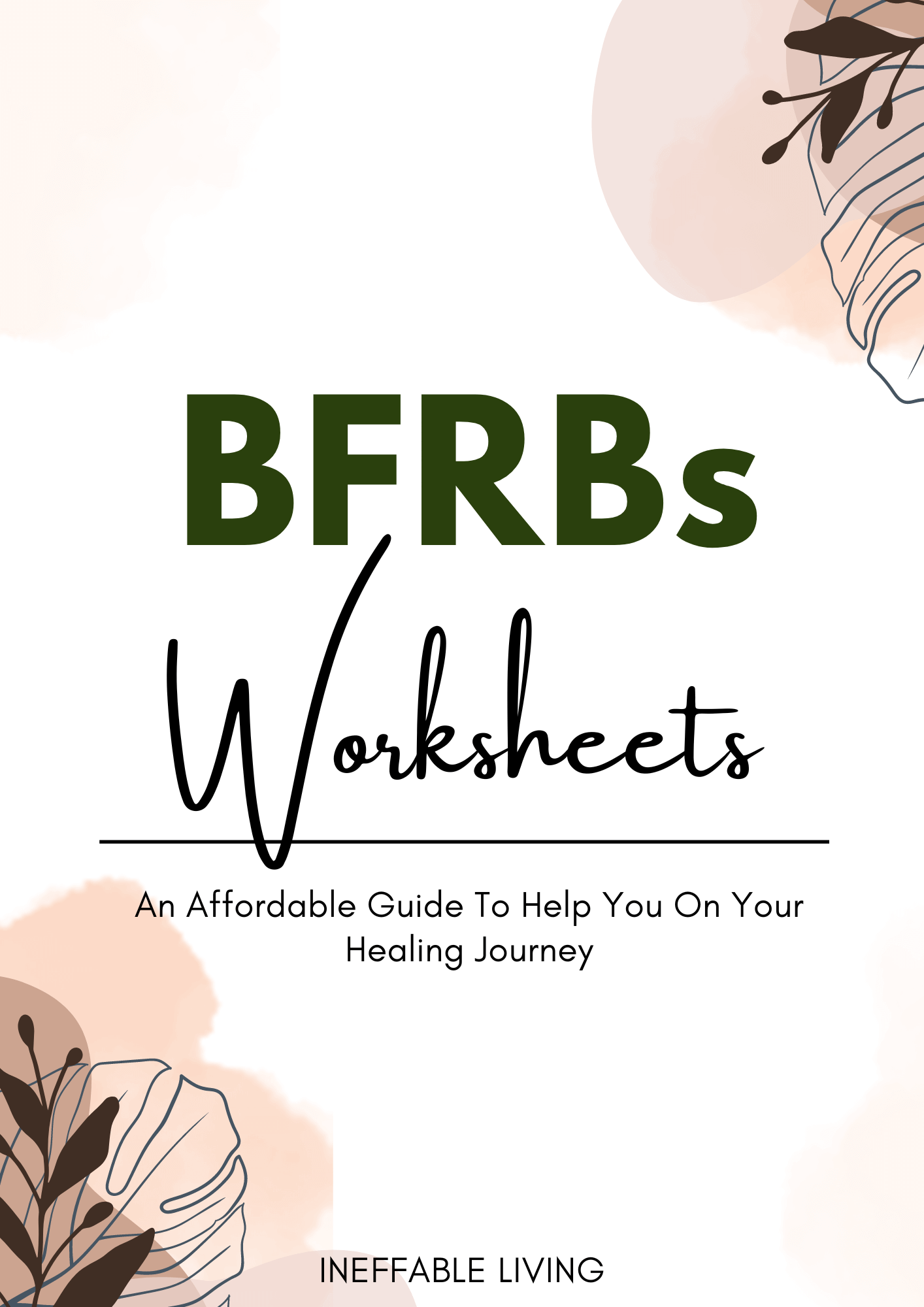If looking in the mirror fills you with criticism, shame, or discomfort — you’re not alone. In a world that constantly tells us how we should look, it’s no wonder that body image issues are so common. But your worth was never meant to be measured by a number, shape, or reflection.
Healing your relationship with your body takes time — and support. That’s where mental health worksheets can help. They give you space to explore, reflect, and begin shifting from body judgment to body kindness.
What Poor Body Image Feels Like
Body image struggles often show up as:
- Negative self-talk (“I hate how I look,” “I’m disgusting”)
- Obsessive checking or avoiding mirrors
- Comparing yourself constantly
- Body-related anxiety or depression
- Disordered eating patterns
- Feeling like your appearance defines your worth
These thoughts and feelings can be overwhelming — but they can also be unlearned.
1. Body Image Worksheets
Challenge negative self-talk, embrace body neutrality, and start building a kinder relationship with your body.
2. Anorexia Worksheets
Support recovery with guided prompts that promote nourishment, self-worth, and emotional healing beyond control.
3. Bulimia Nervosa Worksheets
Break the binge-purge cycle with tools that address triggers, shame, and self-regulation through compassion and structure.
4. Body-Focused Repetitive Behaviors Worksheets (Trichotillomania, Skin Picking, and Other BFRBs)
Gain awareness and coping strategies for trichotillomania, skin picking, and other BFRBs with tools rooted in mindfulness and habit change.
How Worksheets Help Heal Body Image
These worksheets are not about “fixing” your body. They’re about healing your relationship with it. With compassionate guidance, they help you:
- Identify and challenge harmful beliefs about your body
- Separate self-worth from appearance
- Learn body-neutral and body-positive language
- Process emotions like shame and comparison
- Reconnect with your body through mindfulness and gratitude
- Cultivate realistic and respectful self-talk
The goal isn’t to love your body every single day — it’s to treat it with respect and stop letting appearance control your peace.
Who This Is For
These worksheets are for you if:
- You’re stuck in a cycle of body shame and want out
- You’re recovering from disordered eating or diet culture
- You want to model healthier self-talk for your children or loved ones
- You’ve never felt “good enough” in your own skin
- You’re tired of letting the mirror determine your mood
You don’t need to “love” your body to start treating it with care. Respect is a powerful first step.
Start Your Body Image Healing Journey Today
You are more than how you look. These worksheets won’t give you a perfect body — they’ll give you something better: a softer, kinder relationship with the one you already have.

Read Testimonials –> HERE
FAQs
Can I use the worksheets with my therapy clients?
Absolutely! The worksheets are meant for both, personal and professional use.
The worksheets are copyrighted so you can’t resell them or upload them publicly online. But you can share them with your clients.
Can I make changes to the files before handing them down to my clients?
Absolutely! You can convert your PDF files to word documents and make changes using free tools like pdf2doc.com.
How do I know if these worksheets are right for me?
These worksheets are perfect for anyone who needs an affordable, yet effective strategies to help them increase their self-awareness and work on their own issues – alone or with their therapist.
These worksheets are not a one-size-fits-all approach and are in no way meant to imply that change is as one-dimensional as a worksheet.
So choose the techniques and suggestions that apply to you and tailor the exercises in ways that will be helpful to you.
Can I use these worksheets on my own or should I seek professional guidance?
These worksheets are designed to be helpful on their own. However, seeking professional guidance from a mental health professional can increase their effectiveness.
How do I use mental health worksheets effectively?
1. Set aside dedicated time: Find a quiet and comfortable space where you can focus on yourself without distractions. Treat this as valuable self-care time, just like you would for any other important appointment.
2. Choose the right worksheet: There are numerous worksheets available, each offering unique exercises and prompts. Consider your specific needs and goals. Are you looking to enhance self-awareness, manage stress, or improve your relationships? Select a worksheet that aligns with your current focus.
3. Read instructions carefully: Take a moment to fully understand the purpose and instructions of the worksheet. Clarify any questions you may have before proceeding.
4. Engage in self-reflection: Set pen to paper and let your thoughts flow. Don’t worry about perfection or judgment – this is your private space to express yourself authentically. Be honest with yourself and explore your emotions, thoughts, and experiences without restraint.
5. Reflect on your insights: After completing the worksheet, take some time to reflect on what you have learned about yourself. Consider any patterns or triggers that impact your mental well-being. Identify areas where you can implement positive changes or coping strategies.
6. Incorporate your insights into daily life: The true value of mental health worksheets lies in applying your newfound awareness and insights to your everyday life. Consider how you can integrate these insights into your relationships, self-care routines, and overall well-being.
When should I see a therapist?
These worksheets are designed to help you better understand yourself, your distress, and your difficulties.
You can use it in conjunction with therapy or as a stand-alone guide to manage your distress.
These worksheets can be considered a low-intensity intervention. They’re perfect for those who are struggling with mild to moderate issues.
In mental health, mild to moderate symptoms are those that are severe enough to be distressing to you, but moderate enough that you can still manage most of your daily activities.
If you feel very overwhelmed by any of the exercises in these worksheets, this might be a sign that your symptoms are too severe for you to do the work by yourself.
A therapist will help you at your own pace and provide support and encouragement throughout the process.
Do you have more questions? Check this page –> FAQs



